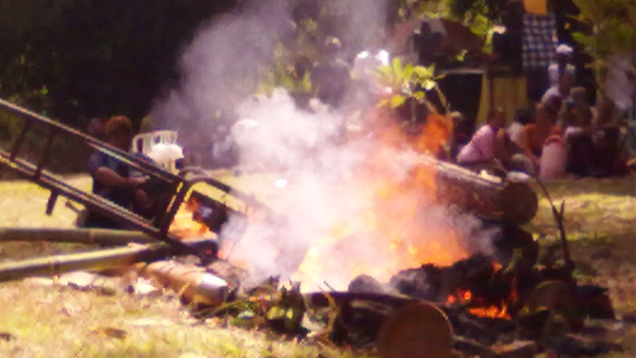BALI, with all its charm, is not only famous for its beautiful beaches, but also for its cultural richness still surviving to this day. The Island of the Gods has various unique traditions that have been passed down from generation to generation, reflecting the harmony between humans, nature, and ancestral spirits.
In this article, we will explore some of Bali’s unique traditions that still live amidst modernization.
1. Ngaben Ceremony: The Spirit’s Journey to Nirvana
Ngaben is a cremation ceremony that has deep spiritual meaning for the Balinese Hindu community. This ritual aims to free the spirit from the physical body and help it reach the afterlife. This procession includes various stages, starting from preparing the ceremonial equipment, burning the body, to the ritual of releasing ashes into the sea or river as a symbol of the return of the body’s elements to the universe.
2. Melasti: Purification of Self and Nature
Melasti is a ceremony held before Nyepi Day. In this ritual, Hindus bring pratima (sacred statues) and other sacred objects to the sea or water sources to be purified. This ceremony symbolizes the cleansing of oneself and nature from all physical and spiritual impurities, in preparation for entering the Saka New Year
3. Omed-Omedan Tradition: Ritual of Love and Togetherness
Omed-Omedan, or often called the “mass kissing ritual,” is a unique tradition that only exists in Banjar Kaja, Sesetan, Denpasar. This ritual is held the day after Nyepi and involves the village youths who pull each other in an atmosphere full of laughter and joy. After that, they are doused with water. This tradition is believed to bring blessings to the local community.
4. Mekare-Kare: Traditional Duel in Tenganan Village
Mekare-Kare or Pandan War is a unique tradition from Tenganan Village, Karangasem. This ritual is part of the Sasih Sembah celebration and is a form of respect for the God Indra, the god of war in Balinese Hindu beliefs. Men fight one-on-one using thorny pandan leaves as weapons and woven rattan as shields. Although it looks tough, this tradition is carried out with a spirit of brotherhood.
5. Makepung: A Spirited Buffalo Race
Makepung is a Balinese buffalo race originating from the Jembrana area. Initially, this tradition was part of the farmers’ habits to fill their free time after the harvest season. However, now Makepung has developed into an annual festival that attracts local and foreign tourists.
6. Nyepi: A Meaningful Silence
Nyepi is a very distinctive and unique Saka New Year celebration. Different from other New Year celebrations, on Nyepi day, all activities in Bali are stopped. There are no flights, no vehicles on the road, and even the house lights are turned off. This tradition aims to introspect, reflect on the meaning of life, and maintain the balance of nature.
7. Mepandes: Tooth Filing Ritual as a Symbol of Adulthood
Mepandes or Metatah is a tooth filing ceremony (straightening the upper teeth) performed as a sign of a person’s transition from adolescence to adulthood. This ritual aims to eliminate six bad human traits, namely lust, anger, stupidity, greed, jealousy, and drunkenness with power.
Conclusion
The unique traditions in Bali are not just cultural heritage, but also reflect the spiritual values and life philosophy of its people. The continuity of these traditions amidst the current of globalization shows how strong Balinese cultural identity is. For tourists, witnessing or even participating in these traditions can be a profound and unforgettable experience.
Bali is more than just a tourist destination—Bali is a soul that lives through its traditions. By preserving and respecting this cultural heritage, we contribute to preserving one of the world’s cultural treasures. (*)










